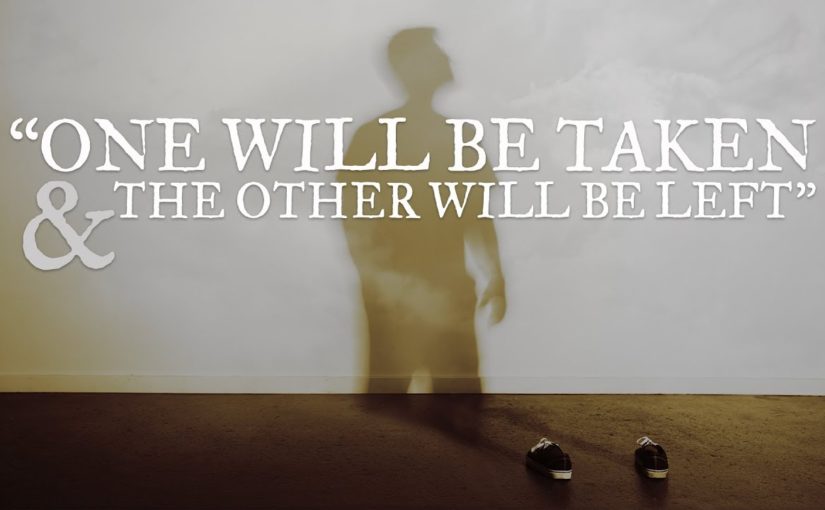So many religious people tend to get concerned about the end of time. Some years ago, there was a serious of books called Left Behind, and a couple of movies made from them. The premise was that Jesus returned to take all the faithful people home, and “left behind” everyone else. It’s a notion known as the rapture, which is not taught by the Catholic Church, because it was never revealed in Scripture or Tradition. In fact, no Christian denomination taught this until the late nineteenth century, so despite being a popular notion, at least among those who clamored after that series of books, it is not an authentic teaching.
I mention this because you might hear today’s Gospel and think of the rapture. But Jesus is really talking about the final judgment, which we hear of often in the readings during these waning days of the Church year. In the final judgment, we will all come before the Lord, both as nations and as individuals. Here those who have made a decision to respond to God’s gifts of love and grace will be saved, and those who have rejected these gifts will be left to their own devices, left to live outside God’s presence for eternity.
So concern about when this will happen – which Jesus tells us nobody knows – is a waste of time. Instead, we have to be concerned about responding to God’s gift and call in the here-and-now. John tells us how to do that in today’s first reading: “Let us love one another.” This is not, as he points out, a new commandment; indeed, Jesus commanded this very clearly, and pointed out that love of God and neighbor is the way that we can be sure that we are living all of the law and the prophets.
The day of our Lord’s return will indeed take us all by surprise. We’ll all be doing what we do; let’s just pray that we’re all doing what we’re supposed to do: love one another.
